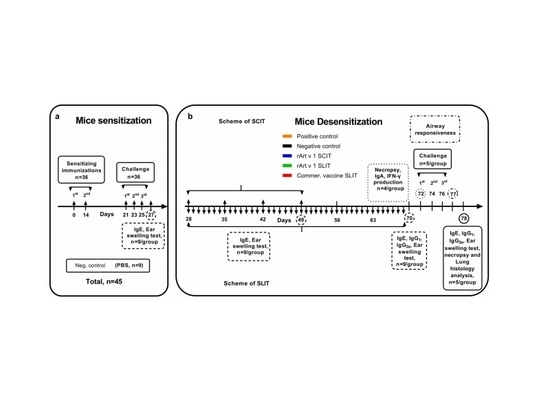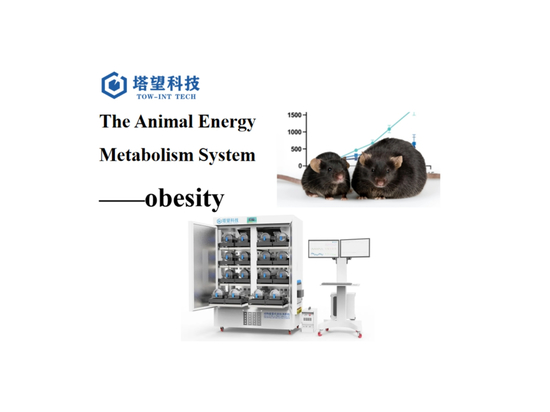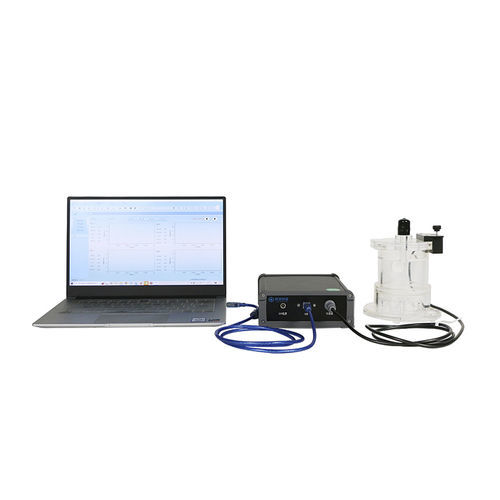
#Industry News
Breakthrough in Cell Metabolism Reveals a New Mechanism of Glucose Metabolic Homeostasis
Professor Li Tao's team from West China Hospital of Sichuan University
Background
Sleep is a fundamental physiological process essential for maintaining health. However, factors related to modern lifestyles have led to an increase in poor sleep quality or insufficient sleep, resulting in various health problems. Sleep fragmentation (SF), which refers to the disruption of sleep architecture, is commonly observed in conditions such as obstructive sleep apnea (OSA), aging, and neurodegenerative diseases. Chronic sleep disruption has been shown to be associated with multiple physiological dysfunctions, including metabolic, cognitive, cardiovascular, and immune disturbances. For example, sleep disruption may alter brain metabolism and interfere with the regulation of metabolic hormones, such as leptin and ghrelin, leading to cognitive impairment and the development of type 2 diabetes. Furthermore, long-term sleep disruption can cause cellular damage and death in various tissues, and patients with sleep apnea often exhibit impaired gut barrier function and an imbalance in gut microbiota. Therefore, addressing sleep disorders is crucial for preventing metabolic dysfunction.
On August 19, 2024, Professor Li Tao's team from West China Hospital of Sichuan University, in collaboration with Professor Cao Yang from the University of Science and Technology of China and Professor Li Nanfang from Xinjiang Autonomous Region People's Hospital, published a cover article in Cell Metabolism titled "Acetate enables metabolic fitness and cognitive performance during sleep disruption." This study focuses on the widespread issue of sleep fragmentation (SF) and its impact on glucose metabolic homeostasis and cognitive function. For the first time, the research reveals the critical role of acetate in maintaining glucose metabolic homeostasis and cognitive function during SF. The study systematically elucidates how acetate activates pyruvate carboxylase, promotes glycolysis and the TCA cycle in hypothalamic astrocytes, and regulates glucose metabolism to maintain metabolic homeostasis and cognitive function under SF conditions.
Researchers used a sleep deprivation system developed by Taicang Technology to intermittently stimulate freely moving mice, establishing a chronic sleep fragmentation (SF) model. Additionally, the study employed an energy metabolism monitoring system, also developed by Taicang Technology, to track the food intake and activity levels of the animals in real-time over 24 hours.
The study found that SF mice exhibited glucose metabolic imbalances and cognitive impairments, characterized by impaired glucose tolerance, reduced insulin sensitivity, disruptions in brain glucose uptake and utilization, and imbalances in glucose homeostasis.
Changes in Acetate Level and Their Impact on Metabolic and Cognitive Function
The researchers observed significant alterations in the gut microbiota responsible for acetate production in SF mice. Using advanced experimental techniques such as Carbon-13 Nuclear Magnetic Resonance (13C-NMR) spectroscopy and 13C-flux analysis, they discovered that acetate levels in the hypothalamus increased, while the expression of Acyl-CoA Synthetase Short-Chain Family Member 1 (ACSS1) significantly decreased. This reduction in ACSS1 expression led to decreased oxidation of acetate in mitochondria, resulting in its accumulation in the hypothalamus. Further studies showed that elevating acetate levels both systemically and in the hypothalamus improved glucose tolerance, insulin sensitivity, and cognitive functions such as learning and memory in SF mice. Conversely, reducing acetate levels exacerbated metabolic and cognitive abnormalities in SF mice, suggesting that adaptive increases in acetate could mitigate glucose metabolic abnormalities and cognitive dysfunction caused by sleep disorders.
Role of ACSS1 in Astrocytes
ACSS1 is specifically expressed in astrocytes, with the highest levels observed in these glial cells. Experiments using astrocyte-specific Acss1 conditional knockout (cKO) mice demonstrated that, under SF conditions, the glucose metabolism and cognitive functions of cKO mice were superior to those of their wild-type littermates. This indicates that the decrease in ACSS1 expression in the hypothalamus leads to acetate accumulation, thereby affecting glucose metabolism and cognitive function.
Role of the PVN Region in the Hypothalamus
The study also found that astrocytes in the paraventricular nucleus (PVN) of the hypothalamus were significantly activated in SF mice. Neurocircuitry tracing and electrophysiological testing revealed a structural and functional connection between the PVN and the hippocampus. Targeting the regulation of acetate levels in the PVN region through astrocyte-specific interference or overexpression of Acss1 altered glucose metabolic homeostasis and cognitive function in SF mice, confirming the important role of acetate levels in the PVN region in maintaining glucose metabolism and cognitive function.
Effects of Acetate on Astrocytes
In vitro studies with primary hypothalamic astrocytes showed that acetate promotes glucose uptake and enhances pyruvate carboxylase (PC) activity, thereby facilitating glycolysis and the tricarboxylic acid (TCA) cycle. Through mixed-solvent molecular dynamics (MixMD) simulations, the researchers identified a specific amino acid binding sequence between acetate molecules and the PC protein, which activates PC. Conversely, specific interference with PC expression in astrocytes within the PVN region partially negated the glucose metabolic homeostasis and cognitive protection effects observed in cKO mice.
Therapeutic Potential of Acetate
To further explore the therapeutic effects of acetate on glucose metabolic abnormalities, the researchers conducted a two-week sodium acetate treatment in SF mice, high-fat diet (HFD)-induced obese mice, and db/db diabetic mice. They found that acetate improved glucose tolerance and insulin sensitivity in these models. Additionally, genome-wide association studies (GWAS) revealed a negative genetic correlation between acetate and glucose metabolism-related phenotypes in humans, including fasting glucose, fasting insulin, HOMA-IR, and type 2 diabetes. Further analysis identified five eQTLs-SNPs associated with hypothalamic ACSS1 expression that significantly correlated with glucose metabolism and sleep cognition phenotypes. Clinical data from patients with obstructive sleep apnea and type 2 diabetes also showed compensatory increases in acetate levels. These findings further emphasize the close link between acetate and glucose metabolic homeostasis in humans.
Conclusion
In conclusion, this study reveals that acetate improves glucose metabolic homeostasis and cognitive function in SF mice by promoting pyruvate carboxylase in astrocytes, enhancing glycolysis and the TCA cycle. It uncovers a novel mechanism by which acetate maintains metabolic homeostasis and promotes cognitive function during sleep disorders. This study was featured as the cover article of the current issue of Cell Metabolism.
Tow-Int Tech’s sleep deprivation system and energy metabolism system were fortunate to be part of this research. Throughout the experiment, we maintained active communication with Professor Li Tao's team, continuously improving our products to ensure more stable data collection and more convenient data processing. This allowed for a comprehensive analysis of the systemic metabolic changes in mice with sleep fragmentation. We sincerely thank Professor Li Tao's team for their valuable suggestions to our company. Professor Li Tao from West China Hospital of Sichuan University, Professor Cao Yang from the University of Science and Technology of China, and Professor Li Nanfang from Xinjiang Autonomous Region People's Hospital are the co-corresponding authors of the paper, with He Qinqin, Ji Liwei, and others listed as co-first authors.
Contact us now!
We are committed to making your research easier, more accurate, and more efficient and helping you build confidence in your data! We have provided services for a large number of customers, giving us rich experiences in offering customized, professional solutions according to your needs.
Introduction to Professor Li Tao
Professor Li Tao is a researcher and doctoral supervisor at West China Hospital of Sichuan University and a young top talent in the "Ten Thousand Talents Program" of the Central Organization Department. He currently serves as the Deputy Director of the Science and Technology Department of West China Hospital, Sichuan University, and the Director of the Mitochondria and Metabolism Medicine Laboratory. He is also the Director of the "Mitochondrial Metabolism and Aging Laboratory" at the National Clinical Research Center for Geriatric Diseases. Professor Li is recognized as an academic and technical leader in Sichuan Province, serves as the academic secretary of the Subcommittee of the Chinese Society of Anesthesiology, and is a member of the American Heart Association (AHA). His primary research focuses on mitochondrial energy metabolism and myocardial injury repair. He has published over 50 SCI papers as a corresponding author or first author in journals such as Cell Metabolism (cover articles, 2), Circulation Research (ESI highly cited papers), Signal Transduction and Targeted Therapy, Biomaterials, British Journal of Anaesthesia, Redox Biology, and Journal of Molecular and Cellular Cardiology (cover articles, ESI highly cited papers).
Reference:
Qinqin He, Liwei Ji, Yanyan Wang, Yarong Zhang, Haiyan Wang, Junyan Wang, Qing Zhu, Maodi Xie, Wei Ou, Jun Liu, Kuo Tang, Kening Lu, Qingmei Liu, Jian Zhou, Rui Zhao, Xintian Cai, Nanfang Li, Yang Cao, Tao Li,
Acetate enables metabolic fitness and cognitive performance during sleep disruption,
Cell Metabolism,
2024,ISSN 1550-4131,
https://doi.org/10.1016/j.cmet.2024.07.019.






